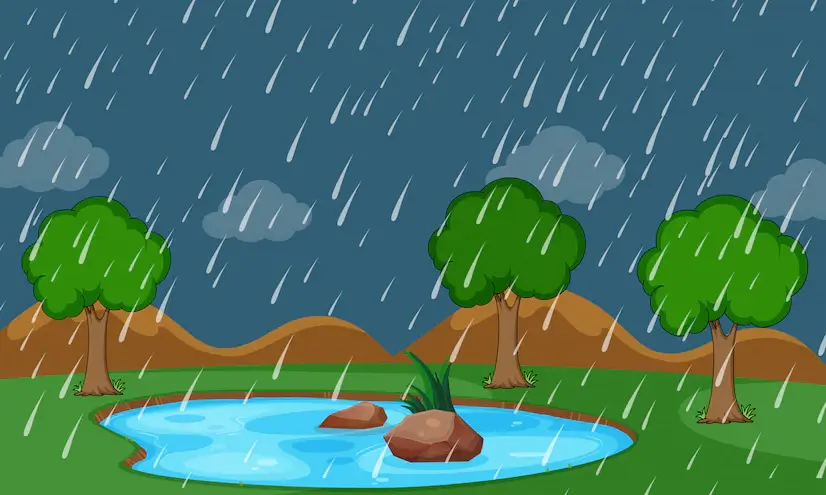
Collecting rainwater is a crucial way of conserving and preserving water.
You collect rainwater by using a rainwater collection system to catch rainwater from your roof and other surfaces and then channelling it for storage in a container.
You can use the rainwater you collect at home in many ways. Additionally, collecting rainwater reduces your dependence on the main water supply, hence cutting down on water costs. The rainwater you collect for your home use should include a treatment or filtration system to enhance its safety as it can pick up pollutants, microorganisms, or debris as it hits your roof.
The volume of rainwater you collect depends on your rainwater harvesting system and the volume of your storage tank. The more volume you collect, the more you can use it for different tasks. You can contact companies like the tank factory to get the tank that fits your needs. For more information, read this.
Below is an outline highlighting some top uses of rainwater at home:
- Cooking And Drinking
Rainwater is typically high-quality for human consumption since it’s pure and doesn’t have chemicals like chlorine that’s mostly used for sanitizing tap water from the main supply. However, using rainwater that you’ve collected from roofs and other dirty surfaces can have microorganisms that can make you sick. Therefore, it would be wise to install water filters, distill, or boil the water before consuming it to make it safe for consumption. You can also install a system that’s capable of directly collecting potable rainwater.
- Bathing And Washing Clothes
Using rainwater to bathe and wash your clothes can help reduce your municipal water use, especially in areas with hard water. Rainwater is naturally soft; hence it requires less detergent and prevents limescale build-up, prolonging your machine’s lifespan. Reducing the amount of water your washing machine uses from the main supply can have a significant impact on water costs. You can use treated or untreated rainwater for your bathing and laundry, depending on the level of water purity you want.
- Flushing Toilets
You can also use rainwater for flushing your toilets instead of water from the main supply to help you cut down on your water bill, since flushing requires a large amount of water. However, you need to ensure that your rainwater harvesting system has a good filter to eliminate debris and other particles that can block valves or discolour the water.
- Household Cleaning
With no chlorine or calcium content, rainwater is an excellent choice for performing general cleaning in your home. You can use it to wash floors and windows, and it won’t leave behind streaks and spots.
You can also use rainwater to wash outdoor items like vehicles, lawnmowers, tractors, garden tools, and the driveway. Typically, an average hosepipe channels about ten litres per minute, and an average bucket can hold around 15 litres of water. Therefore, you can easily use around 10 to 100 litres of treated water from the mains each time you wash your car. It can be economical and eco-friendly to use harvested unfiltered rainwater to wash your car instead. The same applies to your garden tools.
- Watering Your Lawn Or Garden
There are many ways to capture rainwater for your garden, which is ideal for watering both indoor and outdoor gardens. Using rainwater can help conserve drinkable water from the main supply. You can either water your plants by connecting a hosepipe or an automated sprinkler system to your water storage tank. Now, if the above-mentioned equipment are malfunctioning, then it maybe prudent to get it fixed, either through DIY or through experts (like this sprinkler repair service, for example). By using rainwater for your lawns and garden, you can ease the pressure on the water mains during times of high demand such as during summer droughts. Moreover, your plants would benefit from it as it’s naturally soft and doesn’t contain any chemicals.
- Filling Outdoor Ponds And Other Water Features
Harvested rainwater is ideal for filling up your ponds due to its soft nature and lack of chemicals. This makes it safer for any wildlife you may want to put in. Additionally, you can also filter your harvested rainwater and use it in fountains or other home features with pumps.
- Protecting Your Home Against Fire
In areas prone to wildfires, having a rainwater harvesting system with a large storage tank can help in case of a fire. However, it’s crucial to install an effective pump to allow for easy access when you need it.
Bottom Line
Our homes require a water supply to allow us to perform certain duties. Water from the main supply can help us do these chores. However, you can lessen the costs if you install a rainwater harvesting system that can collect water for storage and subsequent usage in tandem with your main supply. Rainwater is typically pure and doesn’t cost anything, so it’s an ideal resource to use around the house. The outline above is a guide showing how you can best use your rainwater at home.